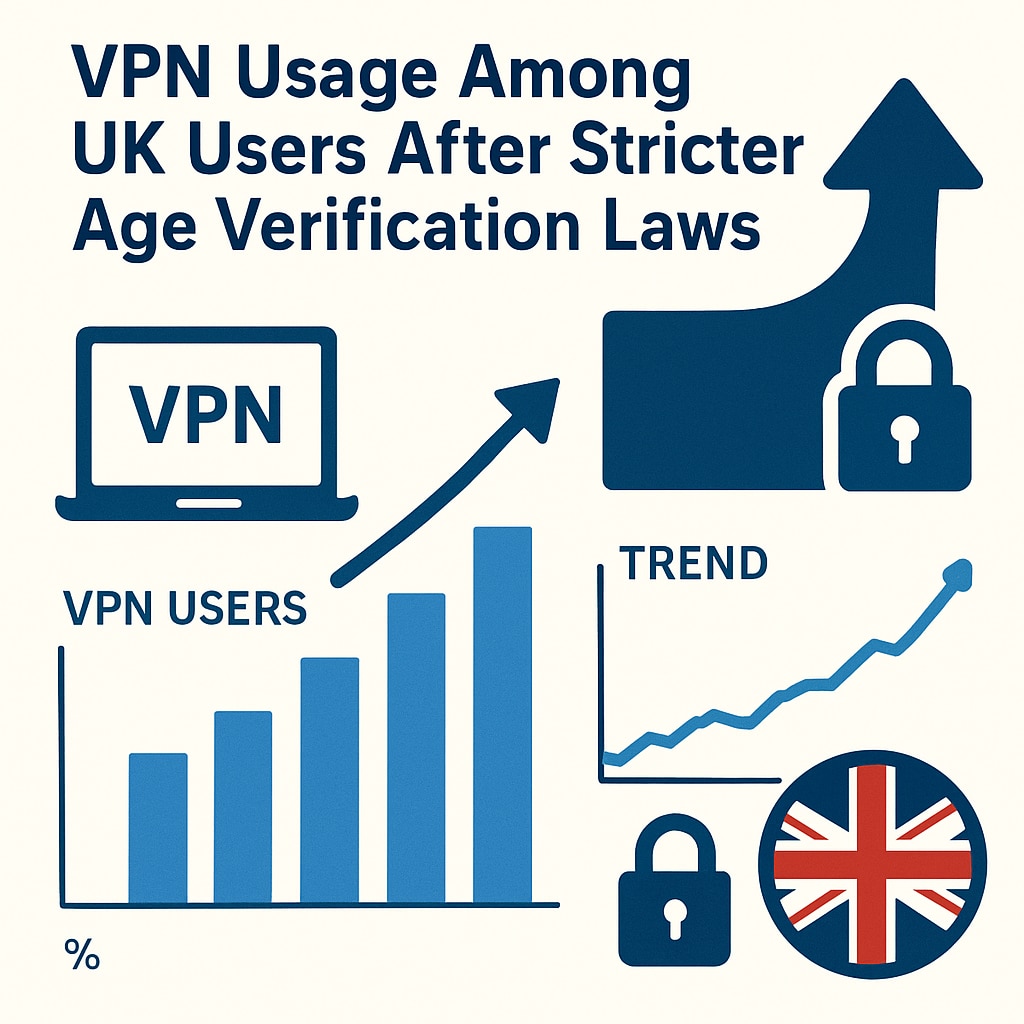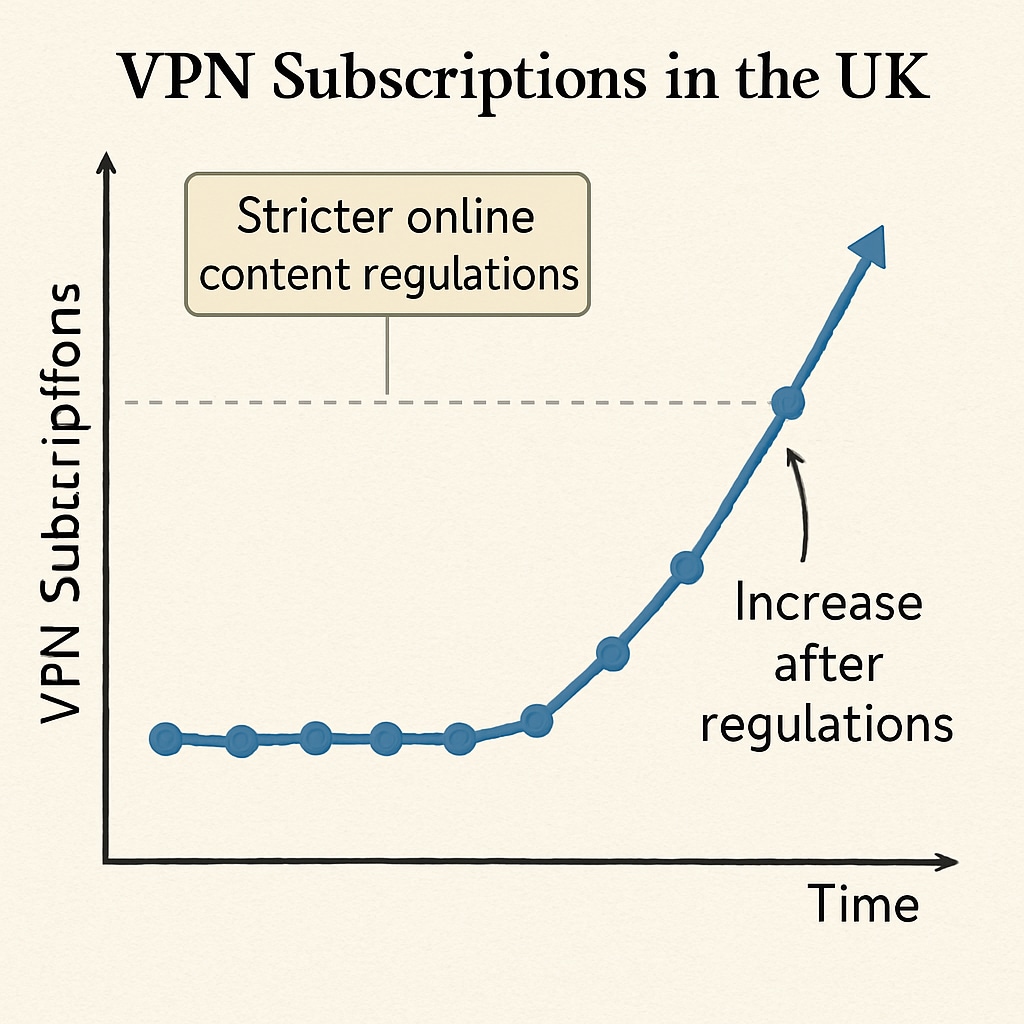The implementation of new UK regulations requiring stringent age verification processes has sparked significant changes in how users protect their online privacy. These measures, aimed at restricting access to adult content and ensuring compliance with age-sensitive platforms, have led to the widespread adoption of Virtual Private Networks (VPNs) and other privacy-enhancing tools. As users seek ways to navigate these restrictions while safeguarding their personal data, a notable shift in digital behavior is emerging.

Understanding the UK Regulations on Age Verification
The UK’s drive to enforce age verification policies has been part of a broader strategy to create a safer online environment. These laws mandate that platforms hosting age-restricted content implement robust systems to verify users’ ages before granting access. While these measures aim to protect minors, they have raised concerns about privacy and data security. For example, users may be required to submit sensitive information, such as government-issued IDs, which could potentially lead to data breaches or misuse.
Critics of the regulations argue that these processes introduce vulnerabilities, making users more cautious about sharing their personal information online. As a result, many individuals are exploring alternative methods to maintain anonymity and bypass these systems.
VPNs: The Go-To Solution for Privacy and Accessibility
Virtual Private Networks (VPNs) have become the preferred tool for users navigating the challenges posed by the UK’s age verification policies. By masking IP addresses and encrypting internet traffic, VPNs allow users to access content without revealing their location or identity. This has proven particularly useful for individuals concerned about the security of their personal data or those facing barriers due to geographic restrictions.
According to recent reports, the demand for VPN services in the UK has surged following the introduction of these regulations. VPN providers are witnessing increased subscriptions, with users citing privacy concerns and frustration over intrusive verification methods as key motivators. However, while VPNs offer a practical workaround, they also raise questions about compliance and ethical use.

Implications for Online Privacy and User Behavior
The enforcement of age verification policies is reshaping the digital landscape in several ways:
- Increased Privacy Awareness: Users are becoming more vigilant about their online activities, seeking tools and practices that enhance anonymity.
- Growth in VPN Adoption: VPNs are now a staple for privacy-conscious individuals, particularly in regions with strict content access laws.
- Shift in Platform Preferences: Some users are opting for platforms with less invasive verification methods or exploring decentralized networks to avoid stringent oversight.
- Concerns Over Data Security: The need to provide personal data for verification has heightened fears of breaches and misuse, prompting users to reevaluate their digital footprints.
These changes underscore the complex relationship between regulations, technological solutions, and user trust. While the UK’s approach aims to address critical societal concerns, it inadvertently highlights the tension between security and freedom in the digital era.
Looking Ahead: Balancing Regulation and Privacy
The UK’s age verification laws have sparked important discussions about the balance between protecting vulnerable groups and preserving individual privacy. Policymakers must consider the unintended consequences of these measures, including the rise of VPN usage and the growing dissatisfaction among users. Collaborative efforts between governments, tech companies, and privacy advocates could pave the way for solutions that effectively address safety concerns without compromising user autonomy.
For example, alternative verification methods, such as AI-driven age estimation or blockchain-based identity systems, may offer greater security and efficiency. Additionally, increased investment in public awareness campaigns could help users better understand their rights and the tools available to protect their privacy.
As these regulations continue to evolve, the interplay between technology, regulation, and user behavior will remain a critical area of exploration. The ultimate goal should be a digital environment that is both secure and respectful of individual freedoms.
Readability guidance: Short paragraphs and bulleted lists summarize key points. Overuse of passive voice and lengthy sentences is avoided, ensuring clarity and engagement. Transition words are used to enhance flow and readability.


